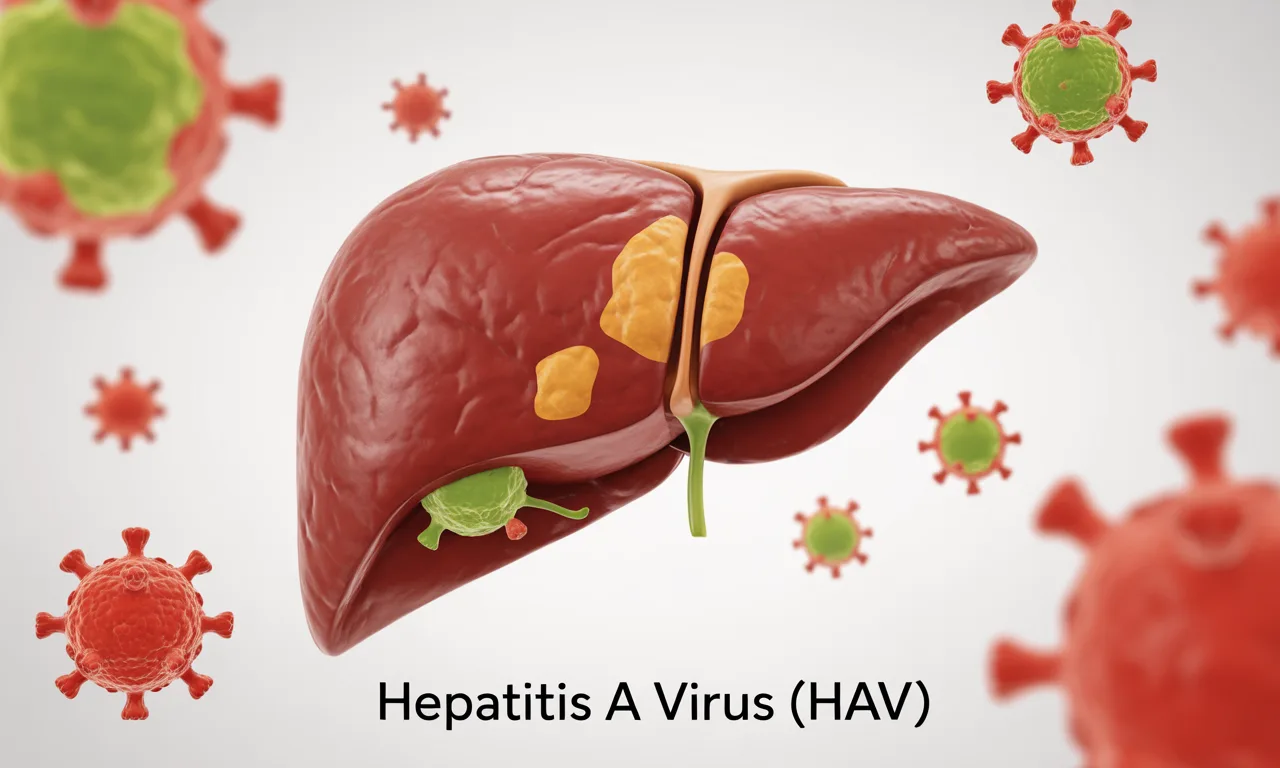What is Hepatitis A?
Hepatitis A is a contagious liver infection caused by the Hepatitis A virus (HAV). It primarily spreads through ingestion of contaminated food and water, causing acute inflammation of the liver. Unlike Hepatitis B or C, Hepatitis A does not lead to chronic liver disease but can cause significant illness, especially in adults.
Causes and Transmission of Hepatitis A
Hepatitis A spreads mainly through the fecal-oral route. Common causes include:
- Consumption of contaminated food or water
- Close personal contact with an infected person
- Poor sanitation and hygiene practices
- Travel to areas with high HAV prevalence
Outbreaks often occur in areas with inadequate sanitation or unsafe drinking water supplies.
Symptoms of Hepatitis A
Symptoms usually develop 2 to 6 weeks after infection and can range from mild to severe. Common symptoms include:
- Fatigue and malaise
- Loss of appetite
- Nausea and vomiting
- Abdominal pain, especially near the liver
- Dark urine and pale stools
- Jaundice (yellowing of skin and eyes)
- Low-grade fever
Children under 6 years often experience mild or no symptoms but can still transmit the virus.
Diagnosis and Testing
Accurate diagnosis is critical for managing Hepatitis A and preventing transmission. Common tests include:
- Hepatitis A Virus (HAV) RNA Detection: This molecular test detects the presence of Hepatitis A viral RNA in blood or stool samples, confirming active infection.
- Hepatitis A Virus (HAV) Viral Load: Measures the amount of Hepatitis A virus in the blood, useful for understanding the extent of infection and monitoring viral clearance.
Early and precise testing helps in timely treatment and reduces the spread of the virus.
Prevention of Hepatitis A
Preventive measures are effective and crucial:
- Vaccination: The Hepatitis A vaccine is safe, highly effective, and recommended for children, travelers, and at-risk populations.
- Good hygiene: Regular handwashing with soap and water, especially after using the toilet and before eating.
- Safe food and water: Consume properly cooked food and drink treated or bottled water. Avoid raw or street food in risky areas.
- Sanitation: Improving community sanitation facilities reduces HAV transmission.
Treatment and Prognosis
There is no specific antiviral treatment for Hepatitis A. Supportive care includes:
- Rest and hydration
- Balanced diet to support liver function
- Avoidance of alcohol and liver-toxic medications
Most patients recover fully without complications within a few weeks. Severe cases are rare but may require hospitalization.
Importance of Awareness and Public Health Measures
Hepatitis A remains a significant global public health concern, particularly in regions with poor sanitation. Raising awareness about transmission, vaccination, and hygiene is essential to control outbreaks and reduce disease burden.
Conclusion
Hepatitis A is a preventable viral liver infection with acute symptoms and excellent prognosis when managed appropriately. Vaccination and good hygiene are key strategies to prevent infection. Reliable information and public health efforts can drastically reduce the impact of Hepatitis A worldwide.



